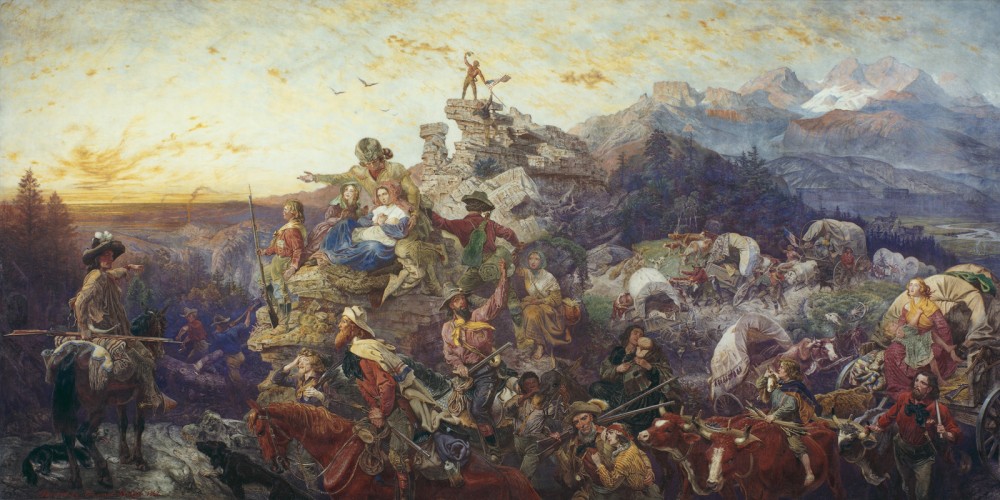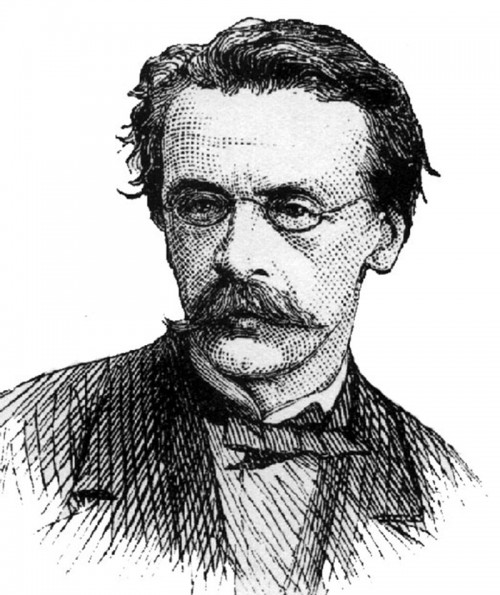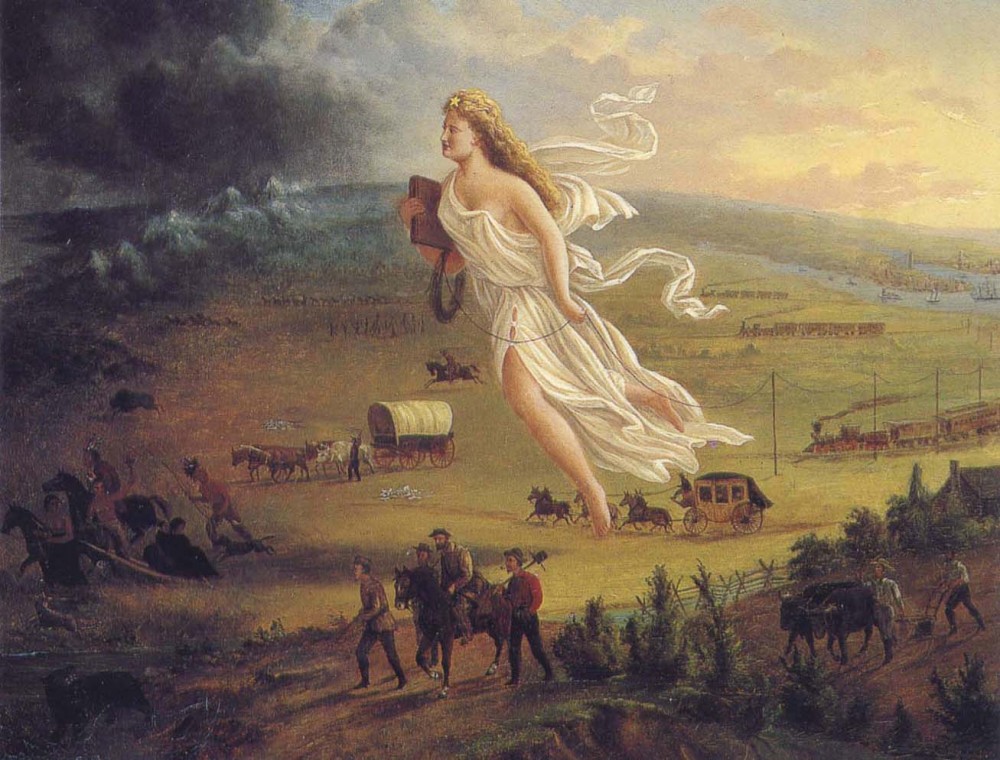
Emanuel Gottlieb Leutze, Westward the Course of Empire Takes Its Way, 1862. Mural, United States Capitol
John Louis O’Sullivan, a popular editor and columnist, articulated the long-standing American belief in the God-given mission of the United States to lead the world in the peaceful transition to democracy. In a little-read essay printed in The United States Magazine and Democratic Review, O’Sullivan outlined the importance of annexing Texas to the United States:
Why, were other reasoning wanting, in favor of now elevating this question of the reception of Texas into the Union, out of the lower region of our past party dissensions, up to its proper level of a high and broad nationality, it surely is to be found, found abundantly, in the manner in which other nations have undertaken to intrude themselves into it, between us and the proper parties to the case, in a spirit of hostile interference against us, for the avowed object of thwarting our policy and hampering our power, limiting our greatness and checking the fulfillment of our manifest destiny to overspread the continent allotted by Providence for the free development of our yearly multiplying millions.
—John Louis O’Sullivan
O’Sullivan and many others viewed expansion as necessary to achieve America’s destiny and protect America’s interests. The 1840s saw the quasi-religious call to spread democracy with the reality of settlers pressing westward.

John O’Sullivan, shown here in a 1874 Harper’s Weekly sketch, coined the phrase “manifest destiny” in an 1845 newspaper article. Interestingly, he was not advocating using force to expand westward, arguing vehemently in those and later years against war in America and abroad. Wikimedia.
Manifest Destiny was a widely held but vaguely defined belief system that embraced several core beliefs. First, many Americans believed that the strength of American values and institutions justified moral claims to leadership. Second, the lands on the North American continent west of the Mississippi River (and later into the Caribbean) were destined for political and agricultural improvement. Third, Americans who supported expansion believed that God and the Constitution ordained an irrepressible destiny to accomplish redemption and democratization.
The Young America movement, strongest among members of the Democratic Party but spanning the political spectrum, downplayed divisions over slavery and ethnicity by embracing national unity and emphasizing American exceptionalism, territorial expansion, democratic participation, and economic interdependence. Poet Ralph Waldo Emerson captured the political outlook of this new generation in a speech he delivered in 1844 entitled “The Young American”:
In every age of the world, there has been a leading nation, one of a more generous sentiment, whose eminent citizens were willing to stand for the interests of general justice and humanity, at the risk of being called, by the men of the moment, chimerical and fantastic. Which should be that nation but these States? Which should lead that movement, if not New England? Who should lead the leaders, but the Young American?
—Ralph Waldo Emerson
However, many Americans disapproved of aggressive expansion. For opponents of manifest destiny, the lofty rhetoric of the Young Americans was nothing other than a kind of American imperialism, of imperial policies that the American Revolution was supposed to have repudiated. Many members of the Whig Party (and later the Republican Party) argued that the United States’ mission was to lead by example, not by conquest. Abraham Lincoln summed up this criticism with a fair amount of sarcasm during a speech in 1859:
He (the Young American) owns a large part of the world, by right of possessing it; and all the rest by right of wanting it, and intending to have it…Young America had “a pleasing hope — a fond desire — a longing after” territory. He has a great passion—a perfect rage—for the “new”; particularly new men for office, and the new earth mentioned in the revelations, in which, being no more sea, there must be about three times as much land as in the present. He is a great friend of humanity; and his desire for land is not selfish, but merely an impulse to extend the area of freedom. He is very anxious to fight for the liberation of enslaved nations and colonies, provided, always, they have land…As to those who have no land, and would be glad of help from any quarter, he considers they can afford to wait a few hundred years longer. In knowledge he is particularly rich. He knows all that can possibly be known; inclines to believe in spiritual trappings, and is the unquestioned inventor of “Manifest Destiny.”
—Abraham Lincoln
But Lincoln and other anti-expansionists would struggle to win popular opinion and the nation, fueled by the principles of manifest destiny, would continue westward, battling native peoples and foreign nations and claiming territory to the very edges of the continent. But westward expansion did not come without a cost. It exacerbated the slavery question, pushed Americans toward civil war, and, ultimately, threatened the United States’ promises to the peoples of the world.

Although the original painting was only seen by a small number of Americans, the engraving was widely distributed, reinforcing and perhaps spreading the nationalistic ideals of the “Manifest Destiny” ideology. Columbia, the central female figure representing America, leads the Americans into the West and thus into the future by carrying the values of republicanism (as seen through her Roman garb) and progress (shown through the inclusion of technological innovations like the telegraph). In the process, Columbia clears the West of any possible hindrances to this progress, including the native peoples and animals pushed into the darkness. Engraving after John Gast, Manifest Destiny, 1872. Wikimedia.
Candela Citations
- American Yawp. Located at: http://www.americanyawp.com/index.html. Project: American Yawp. License: CC BY-SA: Attribution-ShareAlike